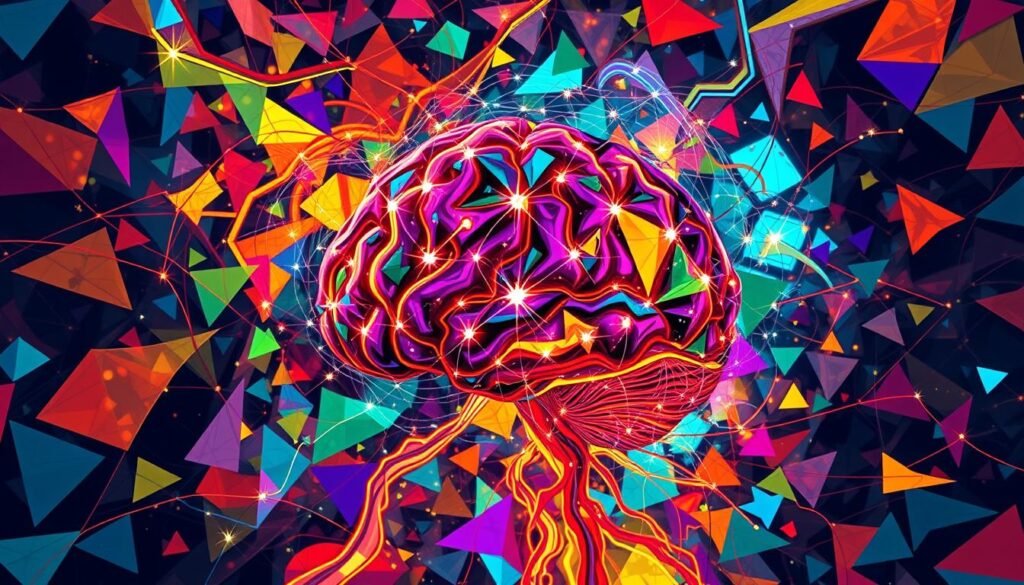In an era defined by constant digital distractions and information overload, maintaining mental fitness has become increasingly crucial. Pure mental exercise, the art of challenging and stimulating the brain through dedicated cognitive workouts, holds the key to unlocking our true intellectual potential. This comprehensive guide will delve into the world of pure mental exercise, exploring its benefits, types, and practical strategies to incorporate it into your daily routine. By embracing this holistic approach to brain health, you’ll discover how to elevate your cognitive abilities, enhance memory retention, and achieve a greater sense of mental clarity and focus.
Key Takeaways
- Learn the importance of pure mental exercise in boosting brain power and cognitive function.
- Discover the different types of mental exercises, from puzzles and brain games to meditation and creative activities.
- Explore practical tips and techniques to seamlessly integrate mental exercise into your daily routine.
- Understand the science behind the neurological benefits of mental training and its impact on overall brain health.
- Debunk common myths about mental exercise and set realistic expectations for your cognitive improvement journey.
What is Pure Mental Exercise?
In the realm of cognitive enhancement, pure mental exercise emerges as a powerful tool for boosting brain power. Also known as Mental Calisthenics, this practice encompasses a wide range of activities that challenge and stimulate the mind, ultimately fostering improved neuroplasticity and cognitive training.
Definition and Importance
Pure mental exercise refers to the purposeful engagement in intellectual activities that promote brain health and cognitive function. From solving intricate puzzles to practicing mindfulness, these exercises harness the brain’s remarkable ability to adapt and change, a phenomenon known as neuroplasticity. By regularly challenging the mind, individuals can enhance their memory, problem-solving skills, and overall cognitive performance.
Brief History of Mental Exercises
The concept of mental exercises has deep roots in human history. Ancient philosophers, such as Socrates and Plato, emphasized the importance of mental stimulation and intellectual discourse for personal growth and societal progress. Over the centuries, various cultures have developed diverse practices, from the intricate mazes of ancient labyrinths to the meditative traditions of the East, all aimed at cultivating mental agility and well-being.
“The greatest weapon against stress is our ability to choose one thought over another.” – William James
As scientific understanding of the brain has evolved, the significance of mental calisthenics has become increasingly apparent. Researchers have discovered that engaging in cognitive exercises can lead to tangible benefits, including improved memory, enhanced problem-solving abilities, and a reduced risk of age-related cognitive decline.
Benefits of Pure Mental Exercise
Engaging in regular pure mental exercises offers a wealth of benefits that can positively impact various aspects of our lives. From enhanced cognitive function to improved memory retention and effective stress reduction techniques, these mental workouts are a powerful tool for brain health and overall well-being.
Enhanced Cognitive Function
Mental exercises, such as puzzles, brain games, and creative activities, challenge our minds and stimulate cognitive processes. This regular brain workout can lead to improved problem-solving skills, increased mental agility, and enhanced focus techniques. As we engage in these activities, we train our brains to think more flexibly, analyze information more effectively, and make quicker decisions.
Improved Memory Retention
Consistent mental exercises have been shown to enhance memory retention and recall. By engaging in activities that require memorization, sequencing, and information retrieval, we can strengthen the neural pathways in our brains. This not only improves our ability to remember facts and details but also helps us better store and retrieve memories, contributing to overall cognitive fitness.
Stress Reduction Techniques
Interestingly, pure mental exercises can also serve as effective mindfulness and stress reduction techniques. Activities like meditation, deep breathing exercises, and creative endeavors have a calming effect on the mind, helping to alleviate anxiety, improve mood, and foster a sense of inner peace. By regularly incorporating these practices into our routines, we can better manage stress and enhance our overall well-being.
The benefits of pure mental exercise are multifaceted, positively impacting our cognitive abilities, memory retention, and stress management. By making these activities a consistent part of our lives, we can unlock the full potential of our brains and achieve a heightened state of mental well-being.
Types of Pure Mental Exercises
Unlocking the full potential of your brain goes beyond passive learning – it requires active engagement through a variety of Concentration Exercises, Mindfulness practices, and Brain Workouts. From puzzles and brain games to creative pursuits, exploring diverse mental exercises can significantly boost cognitive function and overall well-being.
Puzzles and Brain Games
Classic puzzles and brain games are a time-honored way to challenge the mind and hone problem-solving skills. Sudoku, crosswords, and jigsaw puzzles require focus, pattern recognition, and logical reasoning, helping to improve memory and attention. These engaging activities stimulate the brain, providing a satisfying sense of accomplishment upon completion.
Meditation and Mindfulness
Incorporating Mindfulness practices into your mental exercise routine can have a profound impact. Meditation, with its emphasis on present-moment awareness and breath control, can reduce stress, enhance focus, and promote emotional regulation. Mindfulness exercises, such as body scans and guided imagery, encourage a state of calm concentration, allowing the mind to rest and recharge.
Creative Writing and Art
Tapping into your creative side can also serve as a powerful Brain Workout. Activities like journaling, creative writing, and visual arts engage different parts of the brain, fostering imaginative thinking, self-expression, and emotional processing. The act of creating, whether through words or visuals, can unlock new perspectives and inspire innovative problem-solving.
“The brain is like a muscle – the more you use it, the stronger it becomes.”
By incorporating a diverse array of mental exercises into your routine, you can unlock the full potential of your cognitive abilities and embark on a journey of lifelong learning and self-discovery.
How to Incorporate Mental Exercise into Your Routine
Integrating pure mental exercise into your daily life is the key to unlocking its full cognitive benefits. By dedicating a consistent schedule to brain-boosting activities, you can experience enhanced focus, improved memory retention, and a sharper overall mental acuity. Let’s explore some practical tips to help you seamlessly incorporate mental exercise into your routine.
Daily Scheduling Tips
The secret to making mental exercise a lifelong habit is to treat it like any other essential part of your day. Start by setting aside a specific time slot, whether it’s first thing in the morning, during your lunch break, or before bedtime. Consistency is vital, so aim to engage in your chosen mental workout at the same time each day.
To make the most of your dedicated mental exercise time, consider pairing it with a relaxing or enjoyable activity, such as sipping your morning coffee or taking a short walk. This can help your brain associate these sessions with positive experiences, making them more enjoyable and sustainable.
Setting Achievable Goals
When it comes to pure mental exercise, it’s essential to set realistic and achievable goals. Start small, perhaps committing to just 10-15 minutes per day, and gradually increase the duration as you become more comfortable with the routine. This approach will help you build momentum and avoid feeling overwhelmed or discouraged.
Additionally, consider setting specific, measurable goals, such as completing a certain number of puzzles or maintaining a consistent meditation practice. Tracking your progress can provide a sense of accomplishment and motivate you to continue your mental fitness journey.
Remember, the key to successful mental exercise is to find an approach that aligns with your interests and lifestyle. Experiment with different activities and techniques until you discover the ones that resonate most with you. By making mental exercise a consistent part of your daily routine, you’ll be well on your way to unlocking the full potential of your brain.
Best Tools and Resources for Brain Training
Staying mentally sharp requires consistent exercise and the right tools. Fortunately, there’s no shortage of resources to boost your Cognitive Training, Brain Workout, and Mental Calisthenics. From mobile apps to educational courses, the options for improving your brain power are plentiful.
Mobile Apps for Mental Exercise
Unlock your brain’s full potential with these top-rated mobile apps for cognitive training:
- Lumosity – A comprehensive brain training program with a variety of fun, science-based games.
- Peak – Offers personalized brain exercises to challenge your memory, attention, and problem-solving skills.
- Elevate – Focuses on improving critical cognitive abilities like reading comprehension, math skills, and processing speed.
Books and Online Courses
For a more in-depth exploration of mental exercises, consider these acclaimed books and online courses:
- The Brain Workout by Jayesh Sinha – A comprehensive guide to boosting brain health through practical exercises and lifestyle changes.
- Coursera’s “Learning How to Learn” – A popular online course that delves into the science of effective learning and memory techniques.
- Mindset: The New Psychology of Success by Carol Dweck – Examines the power of a growth mindset and its impact on cognitive development.
Whether you prefer the convenience of mobile apps or the depth of books and online courses, these resources can help you unlock your full Brain Workout potential and stay mentally sharp for years to come.
The Science Behind Mental Exercises
Unlocking the power of your mind is not just a metaphor – it’s a well-established scientific fact. The brain’s remarkable ability to adapt and change, known as neuroplasticity, lies at the heart of the benefits of mental exercises and brain workouts. By engaging in cognitive training, you can literally reshape the structure and function of your brain, leading to enhanced cognitive abilities, improved memory, and even stress reduction.
Neurological Impact on the Brain
When you challenge your mind with puzzles, meditation, or creative activities, you stimulate the growth of new neural connections and the strengthening of existing ones. This process of neuroplasticity allows your brain to become more efficient, better able to process information, and more resilient to the effects of aging. Numerous studies have shown that regular mental exercise can lead to increased gray matter volume, improved information processing speed, and better problem-solving skills.
Research Studies Supporting Mental Training
The scientific evidence for the benefits of cognitive training is overwhelming. Numerous longitudinal studies have demonstrated that individuals who engage in regular mental exercises exhibit better cognitive function, memory, and overall brain health over time. For example, a study published in the Journal of the American Geriatrics Society found that older adults who participated in a cognitive training program experienced significant improvements in memory, reasoning, and processing speed, with benefits lasting for up to 10 years.
As research in this field continues to evolve, the scientific community is gaining a deeper understanding of the mechanisms behind the cognitive benefits of mental exercises. By engaging in regular brain workouts, you can unlock your brain’s full potential and maintain a sharp, healthy mind throughout your life.
Age-Specific Mental Exercises
Keeping our minds active and engaged is crucial for cognitive health throughout our lives. From the developing brains of children to the aging minds of seniors, pure mental exercise plays a vital role in enhancing focus, memory, and overall brain function.
Kids and Young Adults
For kids and young adults, cognitive training should begin early. Puzzles, brain games, and creative activities not only stimulate the mind but also lay the foundation for lifelong learning and problem-solving skills. Pure Mental exercise helps young minds develop crucial focus techniques and boosts their potential for academic and personal success.
Seniors and Cognitive Health
As we age, maintaining cognitive health becomes increasingly important. Cognitive Training through activities like meditation, journaling, and language learning can help seniors preserve memory and delay the onset of age-related cognitive decline. By engaging in Focus Techniques tailored to their needs, older adults can stay mentally sharp and independent for longer.
Regardless of age, incorporating regular Pure Mental exercise into our daily routines can unlock the full potential of our brains and keep us mentally agile throughout our lives.
Common Myths About Mental Exercise
When it comes to brain workouts and cognitive training, there are numerous misconceptions that can undermine our understanding of the true benefits of mental exercises. Let’s explore and debunk some of the most prevalent myths surrounding this powerful tool for neuroplasticity.
Debunking Misconceptions
One common myth is that mental exercises are only useful for the elderly. In reality, brain workouts can benefit individuals of all ages, from children to seniors. Engaging in cognitive training can enhance memory, problem-solving skills, and overall brain function, regardless of one’s age.
Another misconception is that mental exercises are a one-size-fits-all solution. In truth, the most effective brain workouts are those tailored to an individual’s unique needs and preferences. Variety is key, as different activities can target specific cognitive abilities.
Understanding Realistic Expectations
It’s important to have realistic expectations when it comes to the effects of mental exercises. While these activities can lead to significant improvements in cognitive function, they are not a magic bullet. Consistent practice and patience are essential for achieving lasting results.
- Mental exercises can enhance focus and concentration, but they won’t instantly transform your brain.
- Improvement in memory and problem-solving skills takes time and dedicated effort.
- Stress reduction through mental exercises is a gradual process, not an overnight solution.
By understanding and addressing these common myths, you can approach brain workouts and cognitive training with a clear and realistic mindset, ultimately maximizing the benefits for your mental well-being.
Tracking Your Mental Progress
Monitoring your Pure Mental exercise and Concentration Exercises progress is crucial for long-term success in Brain Workout. By consistently tracking your cognitive improvements, you can identify areas of strength, address weaknesses, and stay motivated on your journey to enhanced mental fitness.
Journaling Techniques
One effective way to track your Pure Mental exercise progress is through journaling. Regularly recording your thoughts, insights, and experiences can help you identify patterns and measure your growth over time. Consider the following journaling techniques:
- Daily reflections on your Concentration Exercises and mental activities
- Noting any changes in memory, focus, or problem-solving abilities
- Tracking your mood, stress levels, and overall sense of well-being
- Setting and evaluating goals for your Brain Workout routine
Using Apps to Monitor Growth
In addition to traditional journaling, there are a variety of mobile apps and digital tools designed to help you track your Pure Mental exercise progress. These apps often include features such as:
- Cognitive assessment tests to measure baseline and ongoing performance
- Personalized exercise routines and progress tracking
- Habit-building features to encourage consistent Concentration Exercises
- Data visualization and analytics to identify areas of improvement
By consistently utilizing these tools, you can gain valuable insights into your Brain Workout journey and make more informed decisions about your mental fitness routine.
| App | Key Features | Pricing |
|---|---|---|
| Lumosity | Personalized brain training, cognitive assessments, progress tracking | Free with optional in-app purchases |
| Elevate | Daily brain exercises, performance tracking, goal-setting | Free with optional in-app purchases |
| Peak | Brain-boosting games, cognitive testing, personalized challenges | Free with optional in-app purchases |
Consistent progress tracking is essential for optimizing your Pure Mental exercise routine and achieving your Brain Workout goals. By incorporating a combination of journaling and digital tools, you can gain valuable insights and stay motivated on your journey to improved cognitive function.
Community Engagement in Mental Exercise
Harnessing the power of community can amplify the benefits of Mental Calisthenics and Cognitive Training. By engaging with like-minded individuals, you can cultivate a supportive environment that fosters Emotional Intelligence and accelerates your mental exercise journey.
Group Activities and Classes
Participating in group-based mental exercise activities can be a game-changer. From puzzle-solving workshops to mindfulness retreats, these collaborative settings allow you to learn from others, share insights, and challenge each other in a fun and engaging way. Joining a local community class or signing up for an online group session can introduce you to new techniques and reinvigorate your Mental Calisthenics practice.
Online Forums and Support Groups
The digital age has ushered in a wealth of opportunities to connect with a global community of mental exercise enthusiasts. Online forums and support groups provide a virtual space to share experiences, ask questions, and receive encouragement from fellow practitioners. Engaging with this network can help you stay motivated, discover new resources, and expand your Cognitive Training horizons.
| Benefits of Community Engagement in Mental Exercise |
|---|
|
By embracing the power of community, you can transform your Mental Calisthenics practice into a dynamic and rewarding experience. From group classes to online support networks, the shared pursuit of cognitive enhancement can unlock new levels of growth and self-discovery.
Future Trends in Mental Exercise
As the scientific understanding of neuroplasticity and cognitive training continues to evolve, the field of mental exercise is poised for an exciting transformation. Innovative brain training technologies are emerging, offering personalized and adaptive solutions to enhance cognitive abilities.
Innovations in Brain Training Technology
Cutting-edge technologies like artificial intelligence (AI) and virtual reality (VR) are revolutionizing the way we approach mental exercise. AI-powered cognitive assessment tools can provide comprehensive evaluations, identify individual strengths and weaknesses, and deliver tailored training programs. Meanwhile, VR-based mental exercises immerse users in dynamic, interactive environments, stimulating the brain in novel ways and promoting deeper engagement.
The Role of AI and Virtual Reality in Mental Workouts
The integration of AI and VR in mental exercise holds great promise. AI algorithms can analyze user data, track progress, and continuously optimize training regimens for maximum efficacy. VR, on the other hand, can transport individuals into simulated environments that challenge various cognitive domains, from spatial reasoning to problem-solving. By leveraging these innovative technologies, the future of mental exercise will likely offer more personalized, engaging, and measurable pathways to cognitive enhancement.



